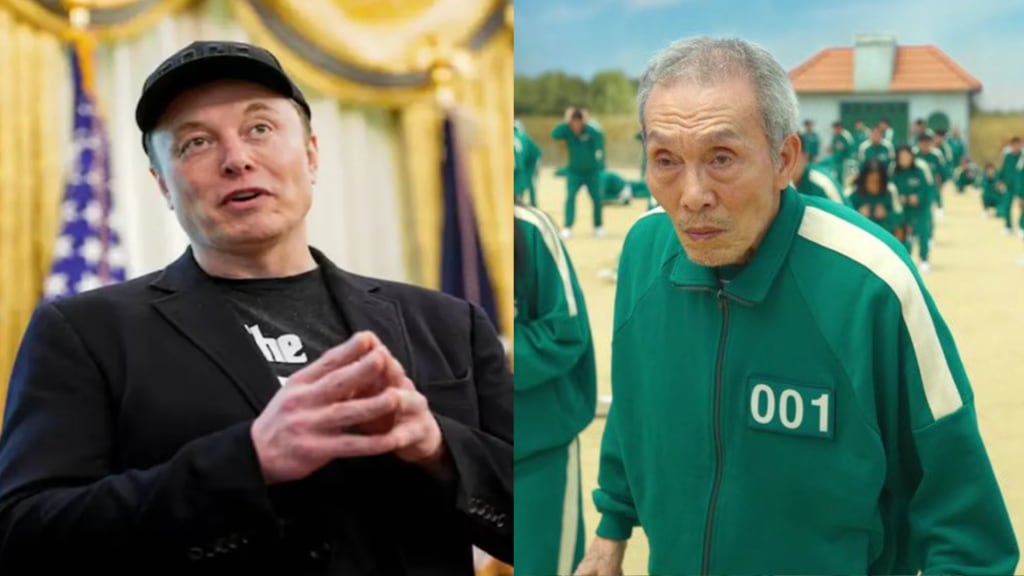Squid Game’s third and final season landed on Netflix on June 27, and fans have already binged-watched it. The season ended on a dramatic note, with the words “Game Over” flashing across the command centre’s screens as guards abandoned their posts and fled the control room.
As the dystopian Korean series wrapped up, creator Hwang Dong-hyuk sat down with Time to reflect on the real-world parallels behind some of the show’s most sinister characters, especially the VIPs.
VIPs kind of resemble Elon Musk
While Hwang clarified that the VIPs were not based on any specific real-world billionaires, he admitted that a few bear similarities to Elon Musk.
“Elon Musk is everywhere these days, right?” he asks, before adding, “Everybody talks about him. Not only is he the head of a huge tech company that controls the world almost, but he’s also a showman. After writing [Season 3], of course I thought, ‘Oh, some of the VIPs do kind of resemble Elon Musk.’”
In Season 1, Oh II-nam entered the Game as Player 001 to pass his time as he was diagnosed with a terminal illness. He revealed from his deathbed that he pitched the Game simply because he was “bored”.
In Season 3, VIPs kill contestants
The VIPs, until now, remained in the shadows, observing the carnage from afar. But in Season 3, they go further. They trade dinner dresses and animal masks with the guard’s pink suits and black masks. They further swap their champagne glasses for machine guns to kill the “losers” themselves.
“They take their masks off and go into the game and kill others with their own hands,” he told Time.
This shift in the VIPs’ roles wasn’t just for shock value; it was rooted in political commentary. According to Hwang, these powerful figures mirror the changing dynamics of global power, particularly in the United States.
“In the past, those who really controlled the system and maintained power were hidden behind the curtain, almost like this big unseen conspiracy. However, it’s no longer the case, especially in America,” he further told the outlet.
He added, “We talk a lot about oligarchy these days, but these so-called big tech owners, they step up, telling everyone who they’re backing with their money. The people who really control the power and the system no longer hide behind a curtain. They willingly take their masks off, almost as if to declare, ‘We’re the ones running everything. We’re the ones in control.’”

